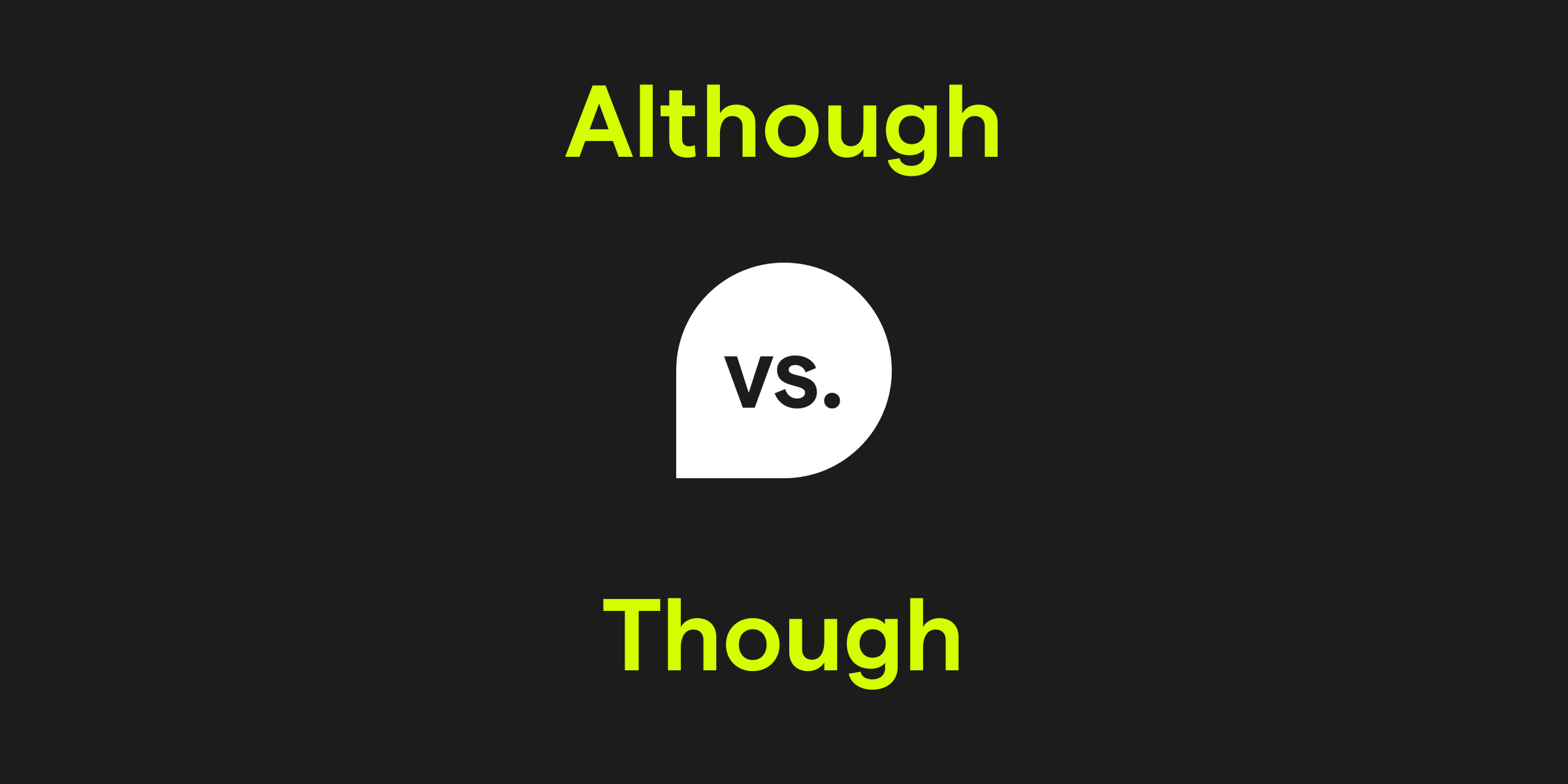Although vs. Though: What's the Difference?
Although and though are conjunctions used to introduce a subordinate clause that contrasts with the main part of the sentence. Although tends to be used in a more formal context, while though can be used more informally. Additionally, though can also function adverbially to convey a sense of mild opposition or surprise.

How do you use the word although in a sentence?
The word although is used to introduce a clause that presents a contrast to the idea expressed in the main clause of a sentence. It is a preferred conjunction in formal writing or when you want to emphasize the contrast more strongly. Although doesn't call for a comma when it comes in the middle of a sentence.
Examples of although in a sentence
- Although it was raining, they decided to go for a hike in the mountains.
- She accepted the job offer, although she had reservations about relocating.
- Although he lacks experience, his enthusiasm makes up for it.
How do you use the word though in a sentence?
Though is used similarly to although, but it tends to be the more casual option and can be placed at the beginning, middle, or end of a sentence. It is often used in spoken language and can provide a less formal tone. When used at the end of a sentence, though takes on an adverbial role to add a contrasting comment or thought.
Examples of though in a sentence
- She didn’t know the answer, though she pretended to.
- It's hard to explain, though I'll give it a try.
- I might go to the party. I'm not sure, though.
Although and though definitions, parts of speech, and pronunciation
Although definition:
Although is a conjunction used to introduce a statement that makes the main statement in a sentence less strong or less likely.
Although parts of speech:
Although pronunciation:
Although is pronounced as /ɔːlˈðoʊ/, with stress on the second syllable.
Though definition:
Though is a conjunction that is similar to although, and it implies a contrast to the preceding clause; it can also be used as an adverb meaning 'however' or 'nevertheless'.
Though parts of speech:
Though pronunciation:
Though is pronounced as /ðoʊ/, with the 'th' sound like in 'this' and a long 'o'.
Although is a conjunction used to introduce a statement that makes the main statement in a sentence less strong or less likely.
Although parts of speech:
- Although it was cold, he didn't wear a jacket.
Although pronunciation:
Although is pronounced as /ɔːlˈðoʊ/, with stress on the second syllable.
Though definition:
Though is a conjunction that is similar to although, and it implies a contrast to the preceding clause; it can also be used as an adverb meaning 'however' or 'nevertheless'.
Though parts of speech:
- Though she was tired, she still finished the race.
Though pronunciation:
Though is pronounced as /ðoʊ/, with the 'th' sound like in 'this' and a long 'o'.
Although vs. though in a nutshell
While both although and though are used to introduce contrasting clauses, although is generally more formal and is less likely to appear at the end of a sentence. Though, on the other hand, is versatile enough to start, interrupt, or terminate a sentence, often functioning adverbially. Understanding the nuances between the two will allow you to create sentences that capture the precise tone and contrast you intend to convey.
Get AI Writing Assistance Wherever You Type
Make sure your vocabulary is on point and every punctuation mark is in the right place, no matter where you’re working. Grammarly works across more than 1 million websites and apps so you can improve your writing without copying, pasting, or breaking focus.

More Commonly Confused Words
Interest piqued? Pore (not pour) over other commonly confused words to help your writing reach peak (not peek) performance.